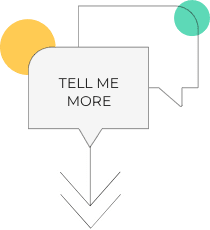
Why a Looming Recession Makes Website Personalization a Must in 2023
In the wake of the COVID-19 pandemic’s massive disruptions to consumer-facing businesses, and the global economy’s failure to fully recover from that setback, too many companies find themselves in a bind.
Consumers are thinking more carefully than ever about each purchase they make, upsetting the presumptions on which many brands built their pre-pandemic marketing strategies. At the same time, supply chain issues and persistent inflationary pressures worldwide have raised the cost of doing business for businesses vying for attention from increasingly reluctant consumers.
In response, many brands have scaled back the very investments meant to streamline their operations and extend their market reach. Digital transformation efforts have been put on hold, advertising spending is down in most industries, and marketing budgets have been slashed.
Some of these measures are necessary for triage. Others, though, may cut too deeply. For example, many brands are sacrificing long-term market position for the sake of short-term support for their bottom line.
During this looming recession, many mid-sized and enterprise businesses have found that the key is to focus on investments that directly support higher conversion rates. In a shaky economy, businesses need their digital assets to deliver higher conversion rates. How can they do this? Website personalization is the key.
The Role of Website Personalization in a Recession
Increasing conversion rates is a wise policy in any economy, and it is critical to businesses and brands operating in today’s climate.
Commercial websites typically suffer bounce rates of 50% or more, meaning that at least half of their visitors never make it past the first leg of the customer journey online. Bounce rates directly affect conversion rates. Although a closely guarded metric in most businesses research has found that the average conversion rate across eCommerce sites as of May 2022 is 1.78%.
As dismal as those numbers might seem, they also point the way to the dramatic upside for companies that manage to improve upon their bounce rates. Enter website personalization, which tailors web content to match the interests and proclivities of each visitor.
At its most basic, website personalization reflects information requested by each visitor. At its most unobtrusive and effective, it uses AI to derive hundreds of inferred data points from the information a brand knows about a given user, then constructs an experience that maximizes the website’s relevance and appeal specifically to the profile it has constructed.
Monetate provides SaaS solutions and strategic consulting services that help brands personalize the customer experience on the strength of AI-powered data analysis. We work with each client to better understand their customer base, deriving new insights from existing customer data. We often find that clients make far less use of their customer databases than modern analytics allow.
When we combine in-house customer information with data we have collected from years of studying the tastes and motivations of customers throughout the world, we are able to derive highly granular descriptions of each website visitor. Our clients use those descriptions to build website and app experiences that speak directly to each visitor’s or user’s specific interests.
Benefits of Website Personalization Across KPIs
Much has changed in the 14 years since Monetate’s founding, but the challenge of turning sparks of interest into sales, and sales into regular customers, has remained central to our business, and to our clients’ livelihoods.
Personalizing the customer’s online journey delivers benefits across a wide range of KPIs. It measurably lowers bounce rates, keeping visitors engaged and brands top-of-mind for longer than traditional methods achieve.
By extension, this increases the number of pages each visitor views before leaving the site, helping establish brand awareness. This deepened exposure to a brand’s messaging translates directly to higher sales conversion rates and to an increased revisitation of personalized websites, which improves SEO.
Finally, consumers who spend more time on the digital customer journey are more likely to participate in cross-sales efforts and upselling initiatives, which directly increase revenue per sale.
These metrics, in turn, directly support broader strategic priorities. Revenue optimization is only the beginning.
Website personalization also mitigates downside risk by helping keep website content relevant and the customer journey compelling. On its own, a website personalization strategy is limited to the content available to it. Our approach blends technology, marketing savvy, and ongoing consultation to help our clients appreciate what drives people to visit their websites, and what they hope to find there.
Clients can then build new branding assets and website content that appeals directly to precisely the visitors they most need to convert into customers.
The result is significantly higher ROI on all website-related investments. Website personalization also delivers significantly higher returns across all marketing and advertising channels, allowing prudent companies to generate more sales even when advertising expenditures are lowered.

Monetate and Personalization Around the World
Each of these observations reflects Monetate’s market leadership and its work with more than 1,000 EMEA, APAC, and US brands including Adidas, Lufthansa, Next, Sainsbury, Ralph Lauren, and more.
Each client’s strategies and priorities are unique, and each client is uniquely capable of delivering a bespoke customer journey via its website and apps. Some already have rich stores of digital content to offer and use personalization to select and present the most relevant of that content for each user.
Others focus their personalization initiatives more closely on certain products or special promotions. Whatever a company’s B2C strategy, and no matter how it changes over time, creating a personalized experience on its most central digital assets—its website and app—is consistently the key to making the most out of any company’s marketing and advertising budgets.
When those budgets are flush, the benefits of website personalization can be less starkly apparent.
Correlating spend with measurable results is a tricky proposition, especially when both expenditures and revenues are relatively high. We may well be in the first years of a prolonged global recession that brings things into starker focus. When every investment counts, executives must look for opportunities to spend their companies’ financial resources on functions that truly resonate with others, helping them trim other budget lines while supporting robust sales and revenue streams.
For years, website personalization has given forward-thinking B2C companies an edge. It is emerging as a more essential business function than ever.
Contact our team to learn more about the benefits of website personalization and find out how an all-in-one platform can help you start preparing your eCommerce site and business for the impacts of the recession with website personalization.
This blog is by Monetate’s General Manager, EMEA & APJ, Adrian Moss.